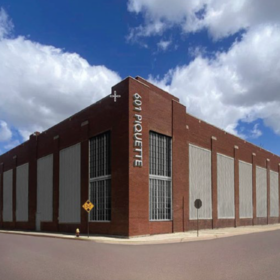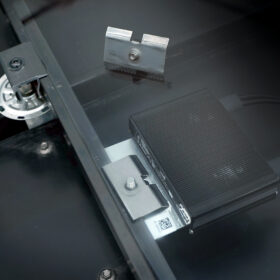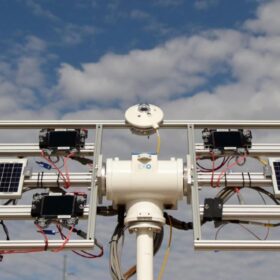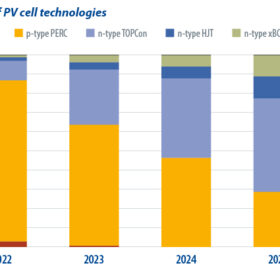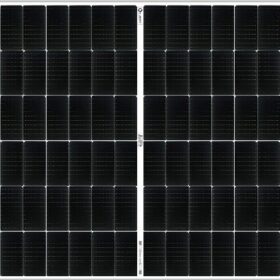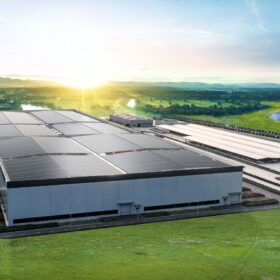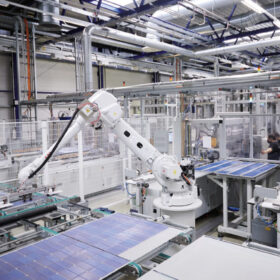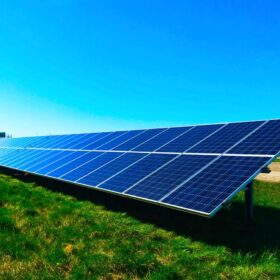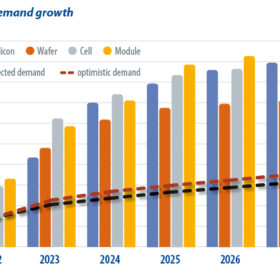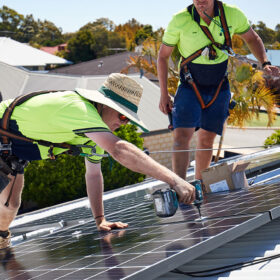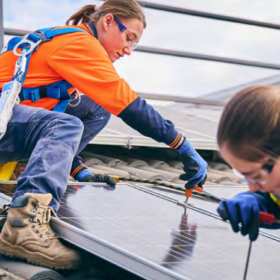Fortescue commits to major manufacturing facility in US
Fortescue has announced plans to open its first manufacturing centre in the United States, partnering with the state of Michigan to establish a production hub for automotive and heavy industry batteries, fast chargers and hydrogen electrolysers.
S-5! offers solar attachment solution to simplify wire management
S-5! has introduced a module-level power electronics mount for solar developers, installers, end users, and engineering, procurement and construction contractors who are looking for a mounting device for solar module frames, without attaching to rails.
US startup developing perovskite-silicon tandem panels with 26% efficiency
Tandem PV has secured capital to advance its four-terminal perovskite-silicon tandem module technology and move closer to first manufacturing. The company claims its products maintain 80% of the initial performance after 25 years.
Weekend read: The writing’s on the wall for p-type
The shift from positively doped, “p-type” to negatively doped, “n-type” solar technology has sparked manufacturing expansion, says S&P Global’s Jessica Jin.
Bluebird Solar unveils M10 half-cut PV modules
Bluebird Solar has developed half-cut mono passivated emitter and rear contact (PERC) solar modules based on M10-sized cells. The modules are available with outputs ranging from 400 W to 550 W.
Trina announces new dual-glass panel with 22.5% efficiency for C&I settings
Trina Solar is preparing to launch a new Vertex S+ series panel in Australia that features a maximum power output of 505 W and 22.5% efficiency and has been designed specifically for commercial and industrial applications.
Meyer Burger to cease PV module production in Germany
Heterojunction cell and panel manufacturer Meyer Burger says it will stop making PV modules in Germany, but it will continue to produce solar cells in the country to support its panel production operations in the United States.
Machine learning algorithm for inverter fault monitoring, prediction
The new algorithm monitors the inverter subsystems and sends alarms when maximum and minimum values are reached. It analyses data and categorises variables according to historic values.
Weekend read: Competition heats up
Oversupply is hitting some solar manufacturers hard but grid constraints and labor shortages are unlikely to hold the solar industry back in 2024.
IEA warns of rooftop slowdown amid rising costs and grid bottlenecks
The International Energy Agency has forecast the rollout of rooftop solar in Australia will drop off “faster than anticipated” with increasing grid integration challenges and saturation of the power system contributing to a revision of expectations for renewable energy growth in the country.
